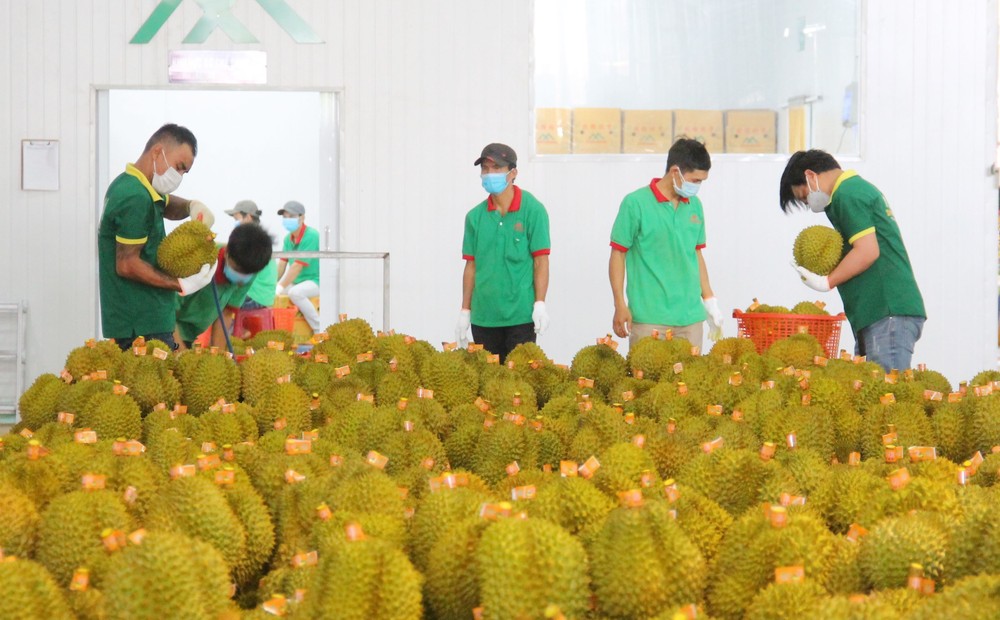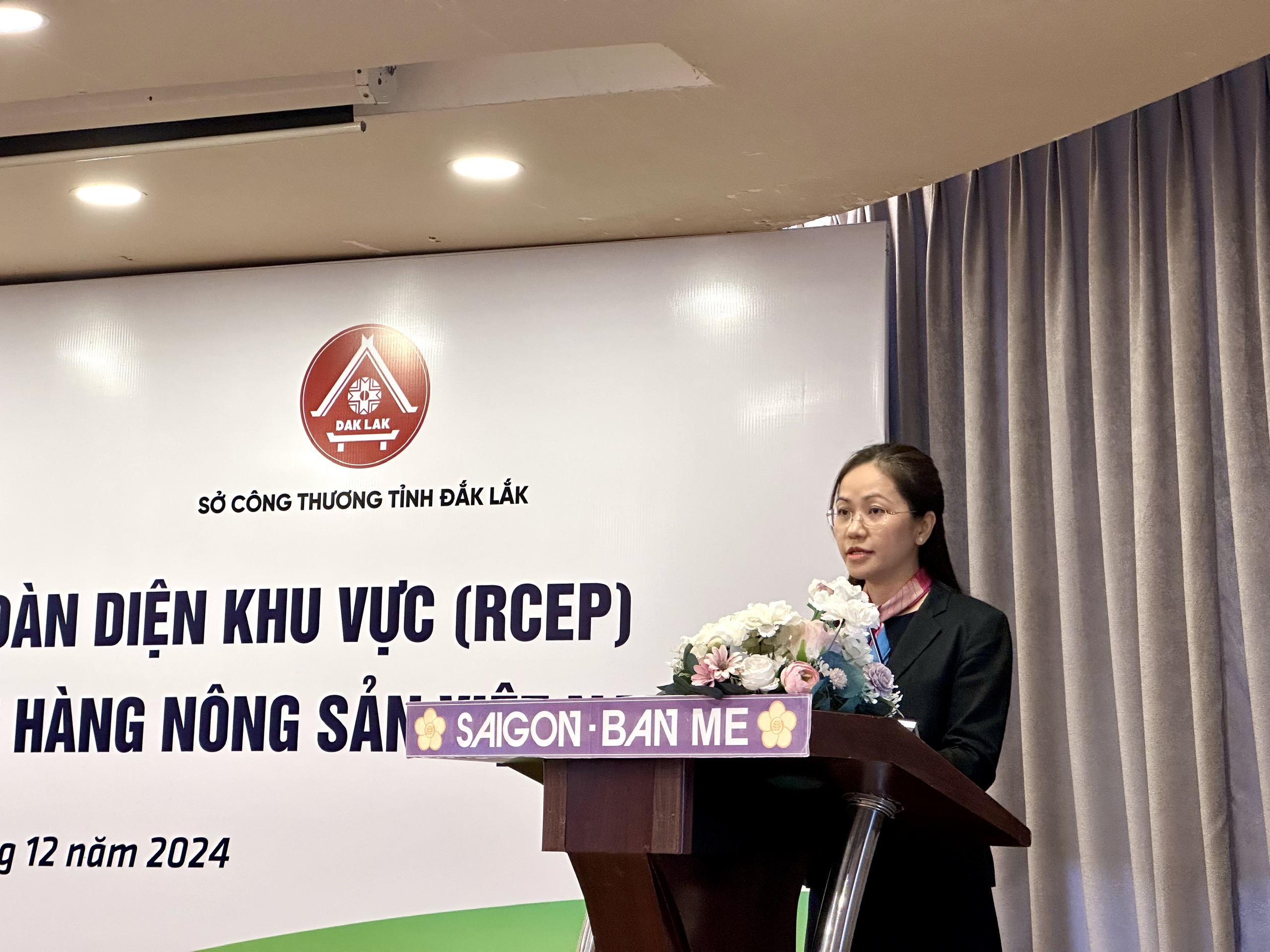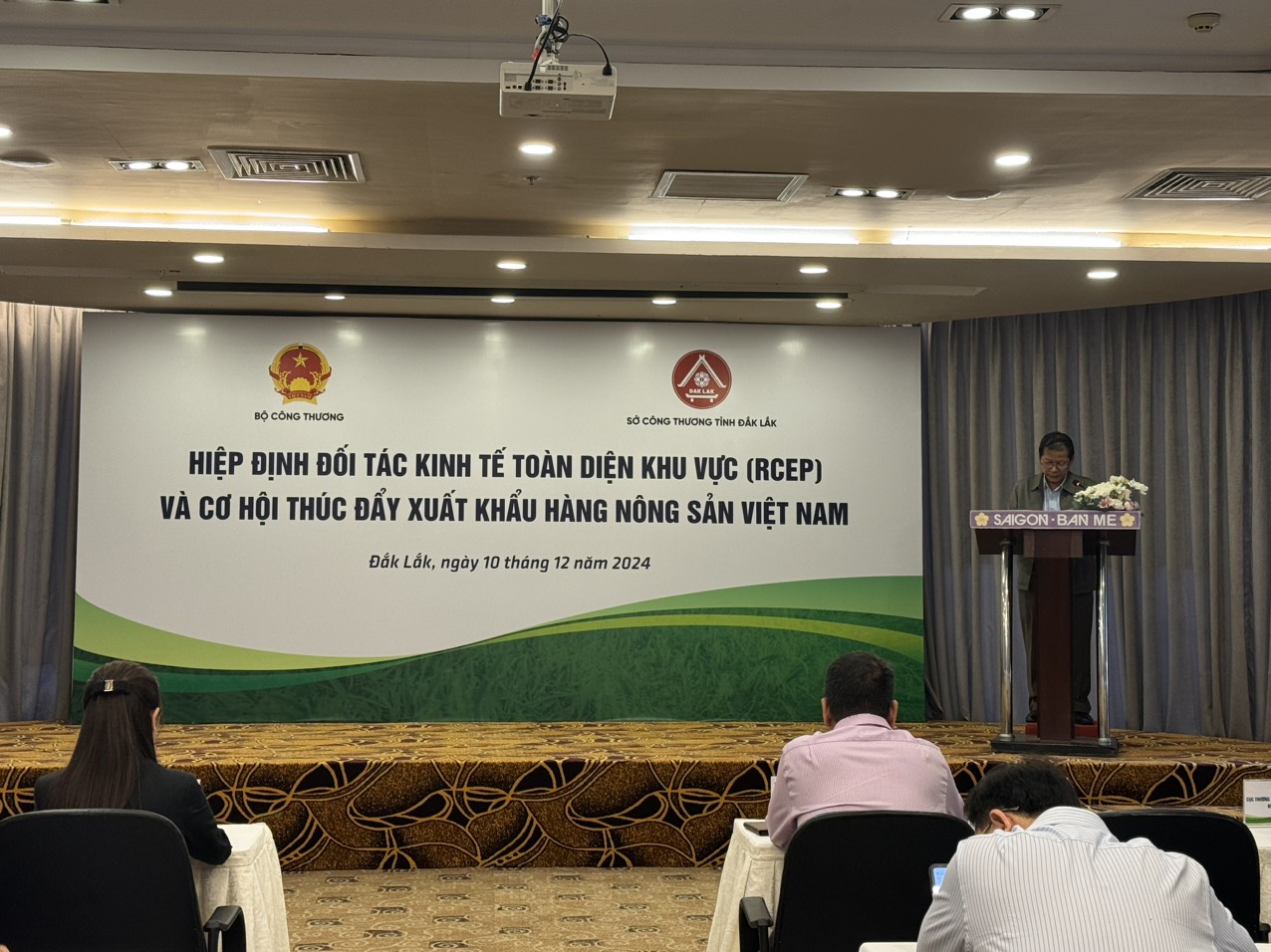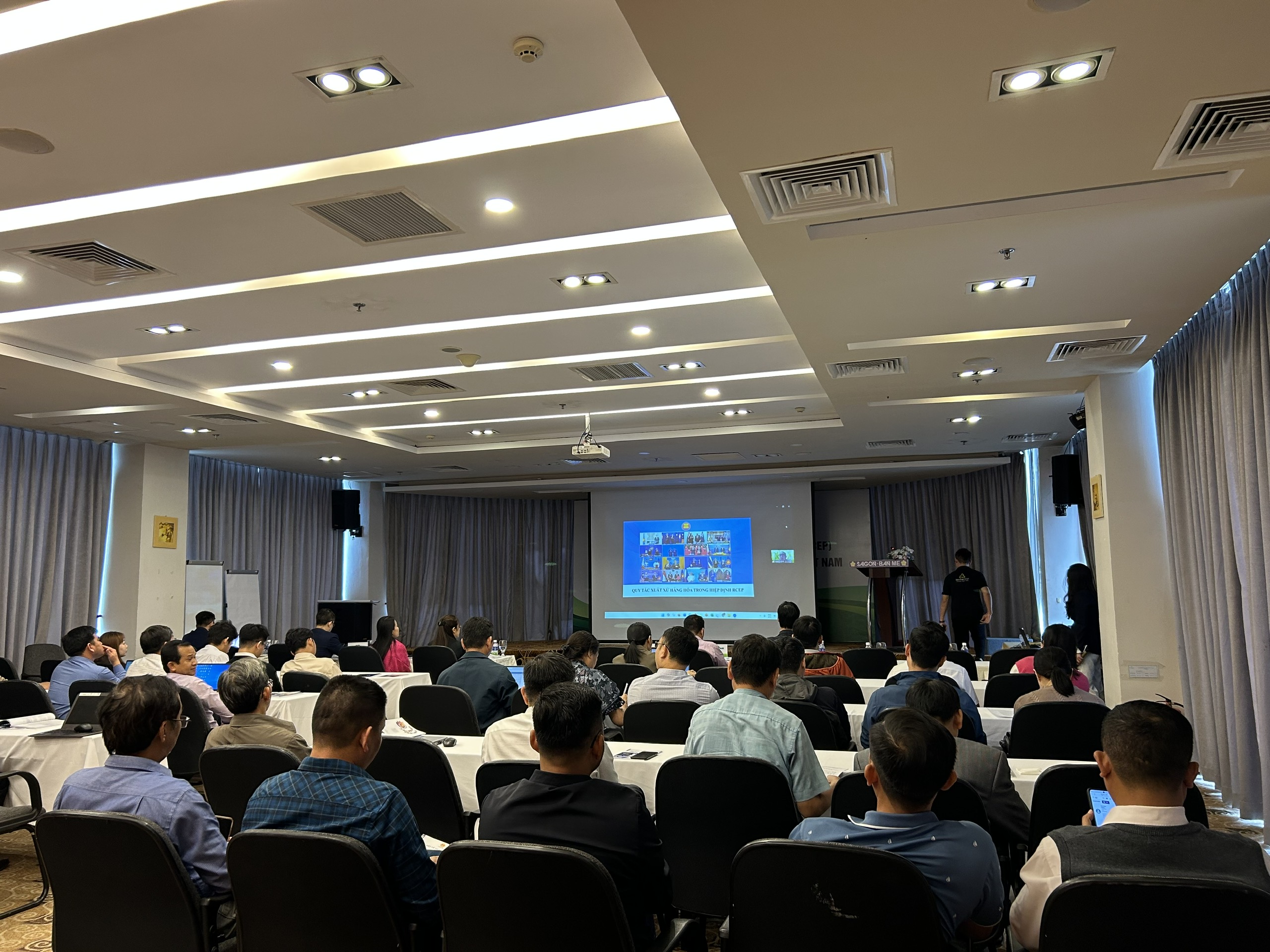Tổng số bài đăng 465.
Dak Lak’s Agricultural Sector Achieves Comprehensive Success in 2024
In 2024, Dak Lak’s agricultural sector continued to achieve remarkable and comprehensive results. The value of agricultural production increased across various commodities, contributing to the province’s export growth and reaffirming its crucial role in the local economy. Agricultural product prices in Dak Lak remained high throughout the year, with coffee and pepper prices repeatedly reaching new peaks. This boosted incomes for farmers and created opportunities for businesses to increase product value.

Photo: Hoài Thu - Viet Nam News Agency (VNA)
The province's agricultural production met its annual targets, with the agricultural, forestry, and fishery sectors estimated to generate over VND 23,450 billion, a 4.52% increase compared to the same period last year, exceeding the plan by 0.65%. Dak Lak’s agricultural products have been exported to more than 70 countries and territories, earning nearly USD 1.7 billion in export revenue. Several key products such as coffee, durian, and macadamia nuts achieved high export value and strong competitiveness in global markets, with agriculture contributing nearly 42% to the province's economic structure.
Workshop on RCEP and Agricultural Export Opportunities
On December 10, the Multilateral Trade Policy Department under the Ministry of Industry and Trade, in collaboration with the Department of Industry and Trade of Dak Lak, organized a workshop on the Regional Comprehensive Economic Partnership (RCEP) Agreement and Vietnam's agricultural export opportunities in Dak Lak province.
The workshop was attended by Ms. Nguyen Viet Chi, Deputy Director General of the Multilateral Trade Policy Department, Ministry of Industry and Trade; Mr. Nguyen Van Nhiem, Deputy Director of the Department of Industry and Trade of Dak Lak province; experts from relevant agencies such as the Ministry of Industry and Trade (Multilateral Trade Policy Department, Export-Import Department, Department of E-commerce and Digital Economy), the Ministry of Agriculture and Rural Development (SPS Office), local agencies, and numerous enterprises in Dak Lak province.
During the workshop, participants learned about several key regulations, including:
- An overview of the RCEP Agreement and agricultural export opportunities;
- Rules of Origin under the RCEP Agreement and export promotion prospects for agricultural products;
- SPS commitments under the Agreement and important notes for Vietnamese exporters;
- Enhancing online export capacity for micro, small, and medium enterprises (MSMEs).
In her opening speech, Ms. Nguyen Viet Chi emphasized that the workshop was part of a series of activities by the Multilateral Trade Policy Department to disseminate information and commitments under the RCEP Agreement and implement the Ministry of Industry and Trade’s RCEP Action Plan. The event aimed to support state management agencies, associations, and businesses in the province in understanding the Agreement's commitments, as well as the opportunities and challenges it presents, enabling them to effectively harness the Agreement's benefits.

Ms. Nguyen Viet Chi - Deputy Director of Multilateral Trade Policy Department, Ministry of Industry and Trade delivered the opening speech at the workshop

Mr. Nguyen Van Nhiem, Deputy Director of the Department of Industry and Trade of Dak Lak Province, speaks at the workshop
Significance of the RCEP Agreement
RCEP includes 15 member countries: 10 ASEAN nations and five partners (China, Japan, South Korea, Australia, and New Zealand). It was signed on November 15, 2020, and came into force on January 1, 2022.
Despite its extensive coverage, RCEP member countries also participate in other trade agreements, and as RCEP was implemented later, the current utilization rate of its incentives has yet to meet expectations.
However, RCEP has unique advantages that other free trade agreements (FTAs) lack. It not only serves as a new agreement but also consolidates and expands previous FTAs, simplifying regulations and creating a unified trade area that connects regional FTAs into a broader and more integrated economic space.
Thus, the workshop was a valuable opportunity for Dak Lak's authorities and businesses to gain deeper insights into the RCEP Agreement, raising awareness among state management agencies while supporting the business community in maximizing the Agreement's benefits for the province's export growth.

After the presentations, participating businesses raised several questions regarding food safety requirements when exporting to RCEP markets, certification mechanisms for specific agricultural products, and how to participate in Vietnam’s National Pavilion on Alibaba.com. All questions were thoroughly answered by guest speakers, facilitating businesses in developing their supply chains within the region and contributing to global economic growth.









